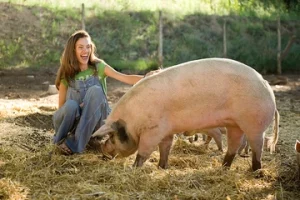Here are the abridged highlights of the email for those of you in a hurry, but scroll down to enjoy my long screed about the belly of the social media whale and/or click through to our blog
Click here to buy pies, cakes, stocks, rolls and pick up at MG ABQ or Santa Fe—link people through the ABQ webpage if we can.
 Email us your name, size of party, and time of night to RSVP for our first Red Sauce Sunday Supper on November 25th at The Feel Good.
Email us your name, size of party, and time of night to RSVP for our first Red Sauce Sunday Supper on November 25th at The Feel Good.
 Click here to read more about this year’s soup travels and this week’s amazing stew Doro Wat, from Ethiopia (where two hundred thousand year old remains of Homo Sapiens have been found, and where we commence our travels)
Click here to read more about this year’s soup travels and this week’s amazing stew Doro Wat, from Ethiopia (where two hundred thousand year old remains of Homo Sapiens have been found, and where we commence our travels)
You may have noticed that until a few short days ago, tumbleweeds have been blowing through our social media pages. And even before this recent longish drought, our posting was always a little, err, erratic. This is because I have issues—with technology in general and social media in particular. I mean, I have a flip phone. Plus, I’m a farmer; I prefer dirt to bits.
And while I couldn’t run my businesses the way that I do without technology, I have some concerns with the track we seem to be on and where exactly people and food and nature—three things I care a lot about—fit into our vision of the future.

So does Jaron Lanier, a tech nerd who has written You are Not a Gadget, Who Owns the Future? and now Ten Arguments to Delete Your Social Media Accounts Right Now. Hear me out.
Wherever you are on the Luddite-Techie spectrum, this is a good read, and we sell it at Modern, along with some other pieces of well-argued tech criticism. Facebook,
Instagram and Google (which Lanier dubs BUMMER companies—an acronym for Behaviors of Users Modified and Made into an Empire for Rent) have allowed us to connect in ways that were until very recently unimaginable, but the business model behind it, Lanier argues, is unethical and dangerous.
I kind of agree. As a business owner on social, you are regularly asked to enter into what feels like a stalkerish, invasive relationship with your customers. FB et al takes this pervy-ness for granted, because they make money by watching us all day, every day, with incredible granularity of attention and conclusion, and then selling that information to advertisers. Dats just what they do.
Given that their directive, behind which they pile their prodigious money and power and engineering expertise, is to keep you engaging on social media more and more, it doesn’t seem particularly conducive to wellness. This is rough for me because we are a wellness company. While it is possible to look at gorgeous pictures of brilliant, brightly colored healthy food and super fit people bent into crazy yoga poses all day long, I know from personal experience that is a far cry from getting up and out from behind the screen and going for a run and then a smoothie, or coming out and having a healthy salad, enjoyed mindfully, and slowly. Providing these things is what we do.
Social media is best at encouraging more and more engagement with itself. The rest of us, who depend on people doing other things with their time, find ourselves in a bit of a Catch 22; we crave and need the customer connection even as we see that it competes with us for our customers’ availability; we can’t live with it, we can’t live without it. In fact, you are considered downright negligent as a business owner if you don’t devote yourself to “telling your story” via social media.
But this story comes at a price. In every business there is a trade-off or opportunity cost for every dollar or every hour, even minute, spent. In my case, I spend that dollar or moment sourcing and making better and better food and spaces and experiences for my customers, or I can spend it talking about doing all that—in other words, posting on social media or paying someone to post on social media. But while I LOVE making the spaces and the food, I’m not so good at the documenting part. I’d rather spend my money on an extra farmer who can help us expand our sustainable veggie production than on a social media team that can more deftly navigate Facebook’s cryptic algorithms.
Most of us have become such expert documentarians of life that we don’t even perceive the trade-off it demands anymore. Last month my brand new shower drain busted, and I immediately thought to myself “this is because Kohler is on Instagram.” There is mounting pressure on every company—even those who make freaking toilets, or toilet paper—to have an engaged social media persona and to tell their story via numerous portals. This is an asset in a lot of ways I don’t want to demean—companies have dimensionality and a voice they didn’t used to have—but its equally important to understand that our voracious hunger for visual and digital stories takes real-time and dollars away from, for instance, sustainability, wages, cost of goods sold (in other words, quality of inputs). This is just simple economics. And the argument that the increase in sales due to this new marketing advantage offsets its’ cost may have been true at the beginning, but not so much anymore. Every restaurant is pretty much just trying to keep up with the Jones’ and their marginal benefit is less and less.
I realize I sound like that annoying Debbie Downer at the party—the one who keeps telling everyone that the really yummy Koolaid they are drinking and loving is not organic. No one cares, because it tastes so good. I get it. And I don’t really have any clear answers at the moment.
So I’m making a compromise—a deal with myself, with social media, and with you guys, our customers. I am going to handle our social media accounts myself for a while. It is something I’ve always delegated (even my poor sister took pity on me for a while and posted for us), which makes sense for a company of our size. But I want to get a handle (pardon the pun) on the time and energy it takes and the feeling of the connection, firsthand. I want to feel the cost and the benefit.
If I feel like it is taking away from my ability to do what I always wanted to do—to spread beauty in the physical world, to deliver amazing food and experiences, and help people thrive—then I’m going to delete all of our pages, and we can connect the old way, in our stores, face to face.
Some caveats: I really don’t want to pay to boost posts. Advertising on social isn’t anything like old-school advertising—that is why Lanier calls it “behavior modification.” But boosting posts, paying for them to show up in your feeds, is pretty much what all businesses have to do in order to connect with followers anymore because FB has made it increasingly harder for business posts to be seen organically.
So, come to us. Comes to see our pages and our feeds—I shall be a’posting and feeling it out. I don’t yet think of hashtags, so be patient with me.



